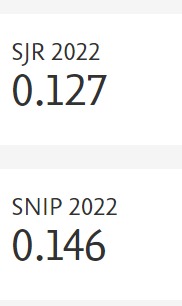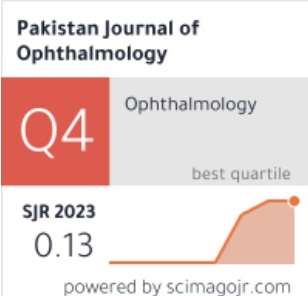A Long Term Follow up after Limbal Conjuctival Autograft for Recurrent Pterygium
DOI:
https://doi.org/10.36351/pjo.v32i1.131Abstract
Purpose: To find out the success rate at three year post surgery of limbal
Conjunctival auto-grafting after pterygium excision in patients with recurrent
pterygium.
Study Design: A prospective case study.
Place and Duration of Study: Dow University of health sciences from June
2008 to May 2014.
Material and Methods: We conducted this study at the Department of
Ophthalmology, Dow University of Health Sciences Karachi from June 2008 to
May 2014. The patients were selected from the outpatient department of Civil
Hospital Karachi and Sindh Govt. Lyari General Hospital Karachi. Thirty six
patients were treated with pterygium excision and limbal conjunctival autograft
with a history of previously failed pterygium surgery due to recurrence. Patients
were followed postoperatively at regular intervals for a period of at least three
years to find recurrence of pterygium and complications.
Results: Out of thirty six eyes, recurrence was observed in 05 (13.8%) patients
over a period of three years of follow-up. Intra-operative complications included
button holing in 02 (5.5%) case that was sutured in the same setting.
Postoperative complications included. Persistent graft edema over two weeks in
06 (16.5%) case, partial graft retraction in 04 (11.1%) cases, graft retraction in 2
(5.5%) cases, dellens in 5 (138%) and giant papillary conjunctivitis due to
sutures 3 (8.3%) cases.
Conclusion: Pterygium excision with limbal conjunctival auto grafting is a
superior technique and results in lower recurrence rates.
Key words: Pterygium, Recurrence, Limbal Conjunctival Grafting, autograft.






